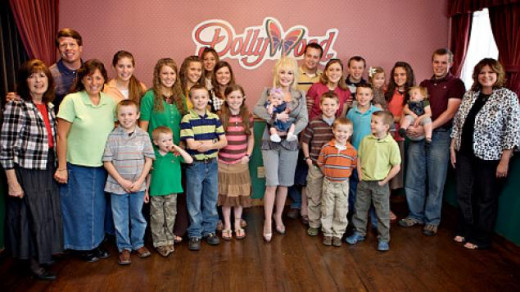What 10 solutions would YOU implement to curb the incessant

overpopulation of this planet? As we all know, the earth's space and resources are finite. Mathematical logic dictates that with more people, more resources are going to be used and resources are dwindling. Smart and educated people are limiting the number of children to 2, even 1 and some are electing to be childless. However, there are those who continuously have children, not caring how their actions adversely effect the environment and draining the resources. Everyone knows that the aftereffects of overpopulation is poverty as a large amount of people are in competition for finite resources.We should cut out the middle-man and just grind people into sludge, then deposit them directly into the sewage system.
At the dawn of agriculture, about 8000 B.C., the population of the world was approximately 5 million. Over the 8,000-year period up to 1 A.D. it grew to 200 million (some estimate 300 million or even 600, suggesting how imprecise population estimates of early historical periods can be), with a growth rate of under 0.05% per year.
A tremendous change occurred with the industrial revolution: whereas it had taken all of human history until around 1800 for world population to reach one billion, the second billion was achieved in only 130 years (1930), the third billion in less than 30 years (1959), the fourth billion in 15 years (1974), and the fifth billion in only 13 years (1987).
In 200 years the population will double to over 14billion yet people are still reluctant to take personal responsibility for their reproduction.+1,000,000,000,000,000,000,000,000,000,000,000,000,000,000,000,000!
In light of what Silverspeeding is talking about, birth control and sterilization will probably become mandatory after the second child. However, as people become more educated, there will be an increase in smaller families. Even poor people will see the fallaciousness of having large families if they haven't already and opt for smaller families! Large families are hopefully decreasing. Only the lesser educated, more religious, and/or more conservative elements are having large families.
The solution should be wider access to education, birth control, and sterlization. There should also be mandatory birth control or sterilization after the second child and tax breaks and other benefits for childfree and small families.
...sounds dismal.
Benjamin Franklin was the 10th child! He discovered electricity, remember! What if he hadn't been born? It doesn't matter how many children a family has. What matters is how they are raised. A mother of ten children has less work to do because everyone pitches in!
I do not mean to argue... just present another outlook. I agree that those who can't afford children and don't have the skills to raise them should be careful about producing too many.
If the government insists on diminishing our potential for a percolating economy, then yes we should become like China.
What a drag.Again, large families drain resources and cause impoverishment. There are LESS resources per children. Children in large families grow up in socioeconomic want. In large families, there is a great incident of poverty than in small families. As we all know, there are ills associated with poverty such as delinquency, poor nutrition, poor medical care, etc.
In societies where there is a plethora of large families, there is poverty. Small families benefit societies. In societies where there are small families, the poverty rate is low. Children have BETTER health care, better nutirition, and MORE opportunities. To reiterate, 1-2 children is enough per family. In order to eliminate overpopulation, there should be benefits and incentives for small families. There is really NO NEED to have large families in this postmodern society. Large families were fine for preurban, agrarian times and when people did not know about contraception.
As societies become more advanced and more education, they will see the fallaciousness and detriments of large families. Small families are immensely beneficial for both parents and children. In large families, parents have to worry about how to feed their evergrowing children. Many large families receive outside assistance and help as parents CANNOT adequately support a large number of children.
Many children in large families have to work in childhood just to support their families. Older children in large families have to discontinue their education in order to assist their parents thus being relegated to poverty themselves. Educated and intelligent people do not have large families, they know the folly of such. Intelligent and educated people have small families because of its myriad benefits. Yes, if overpopulation continues, there has to be more stringent control measures applied via mandatory birth control and sterilization.I cannot imagine living in a world in which men and women---or will it just be women (?), are subject to mandatory sterilization.
How would it be possible to reconcile "mandatory" sterilization with the Bill of Rights? With the US Constitution? With the American way of life?
You suggest: "Mandatory" birth control or "mandatory" sterilization after the birth of a second child.
Really? So you believe some government---any government, has the right to control the bodies of its citizens?
NO government---including that of Communist China, has any right to mandate the sterilization of anyone OR any right to mandate use of birth control.
Do you understand what you are saying when you endorse "mandatory" sterilization? Or "mandatory" birth control?
This is truly appalling.
From the stuff I've been reading, and watching on Youtube, a cull is coming (very soon, apparently).
It seems there are influential people/groups, planning to reduce the population by as much as 95%. Not sure if it will happen, let alone to the extent of stated %-age, though.
There's not enough war, natural disasters, or disease going around to do the job, so, some may take matters into their (own) hands.
There are also prophecies in the Bible, describing, huge numbers of humanity being killed by various means. I hope it doesn't come in my lifetime, but, I'm not confident about that.Even if the world's population seems to be continuously growing, the growth has already peaked and gradually is losing it's momentum. The unsustainable numbers of people are doomed to fall in the near future back to about one billion, however incredible that looks now. It all is coming by natural processes, such as diseases and catastrophes, as the limited resources cannot sustain so many people for longer.
Related Discussions
- 24
What is your Sterotype when you see a large family of 4 children or a small fami
by Nichol marie 6 years ago
What is your Sterotype when you see a large family of 4 children or a small family of just 1 childDo u judge I dont judge on family size at all or those without children at all but I guesse this is a thing now
- 19
Negative Outcomes Regarding Children From Large Families
by Grace Marguerite Williams 3 years ago
According to an article from Business Insider, a study done by researchers Juhn & C. Andrew Zupann of Houston University along with Yona Rubinstein of the London School of Economics, children born into large families have lower likelihoods to succeed because with each additional child in the...
- 37
The Psychology of the Large Family
by Grace Marguerite Williams 8 years ago
The large family of 6 or more children is becoming outmoded. The large family usually have a diametrically different culture and milieu to that of the small family. Parental interaction is rare to nonexistent. As a result of this little or none parental...
- 45
What is the root cause of poverty in the world?
by Christian L Perry 5 years ago
What is the root cause of poverty in the world?
- 176
What do you think of woman with more than 8 children?
by Money Fairy 9 years ago
Do you think a woman with more than 8 children has a mental problem?Isn't it just a little insane to have so many children? Unless you are a gazillionaire how on earth could you afford so many children? And how much time would you really have to spend with them ?Just curious if anyone else thinks...
- 14
Is having more than two children unresponsible?
by Raymond Philippe 10 years ago
Is having more than two children unresponsible?














